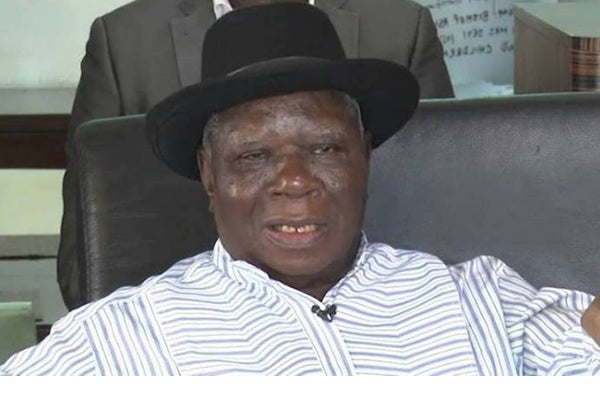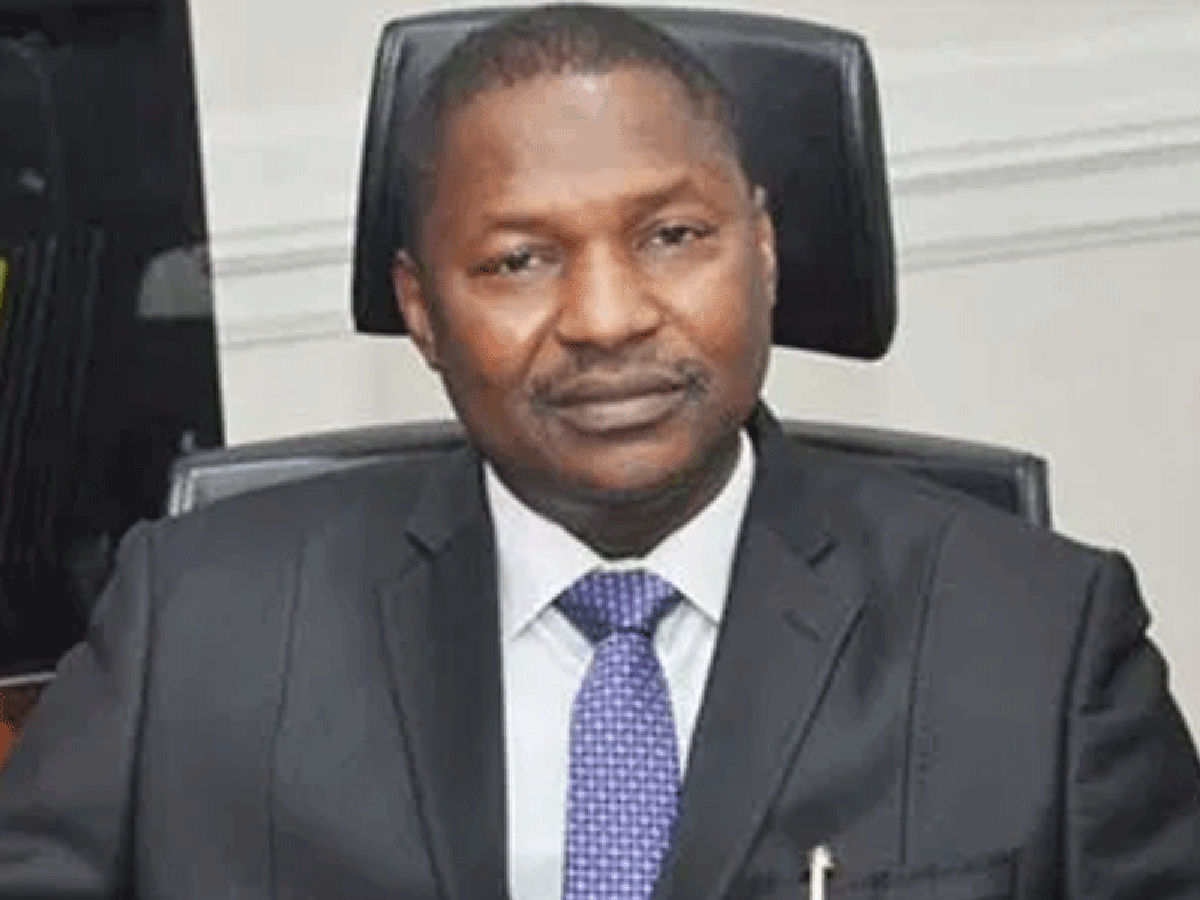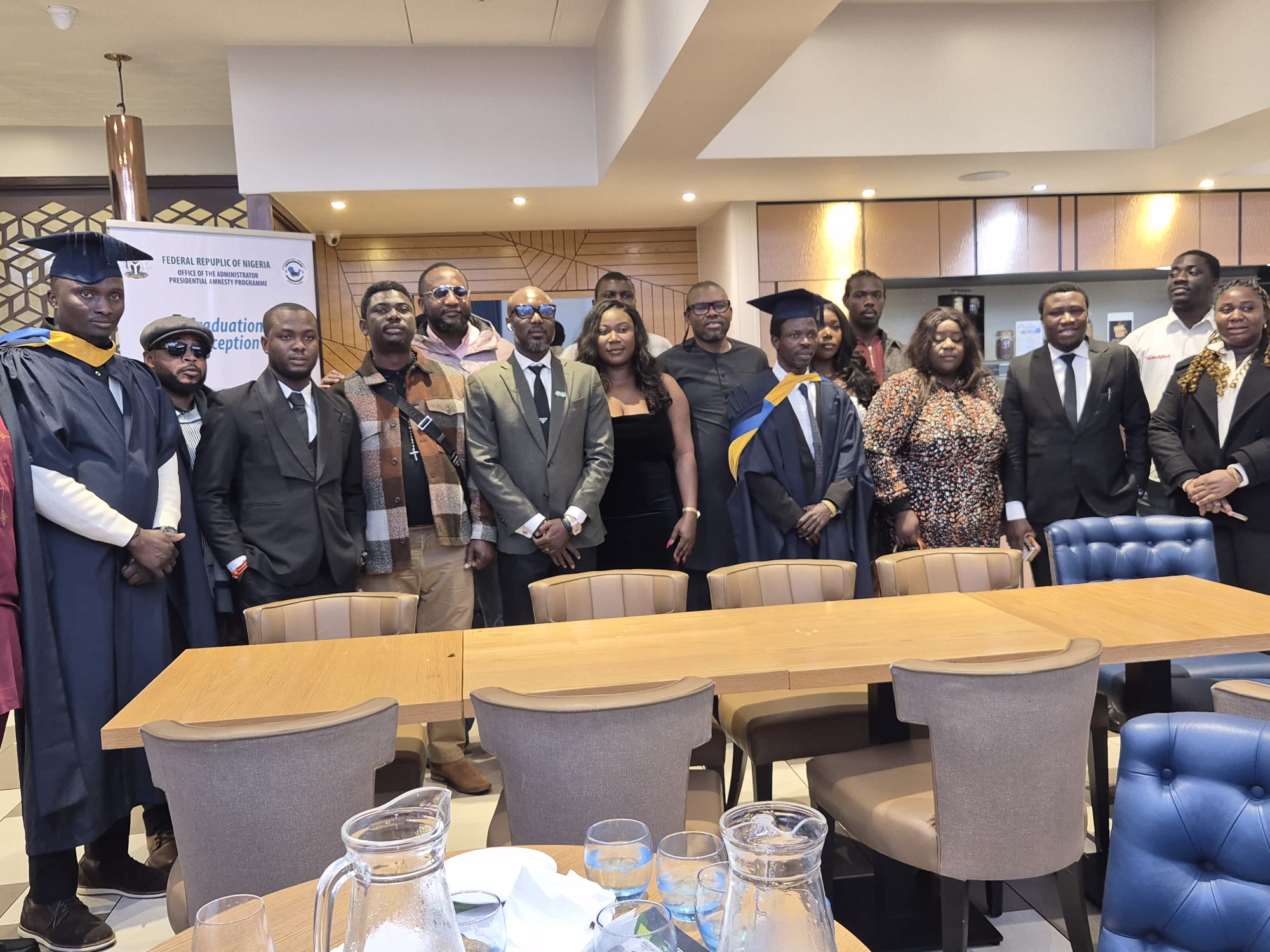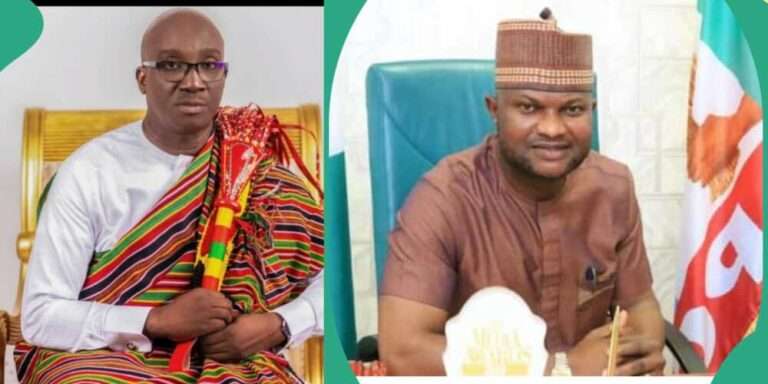News
E.K Clark: Nigeria Has Lost A Man of Truth, Justice, Imansuagbon Mourns

Barrister Kenneth Imansuagbon, Labour Party aspirant In the September 21, 2024 Edo State governorship election has expressed deep sorrow over the passing of Chief Edwin Kiagbodo Clark, the revered Ijaw National Leader and elder statesman, describing his death as a monumental loss to Nigeria.
In a statement, Imansuagbon recalled his last visit to Chief Clark in 2024, where he engaged with the late leader on national issues.
“I remember sitting with him, listening to his deep thoughts about Nigeria. He was a man who spoke the truth, even when it was uncomfortable. He never shied away from saying what needed to be said,” he stated.
Chief Clark, a former Federal Commissioner for Information and a staunch advocate for justice, equity, and good governance, was a towering figure in Nigeria’s political landscape.
READ ALSO: Edwin Clark: The Fearless Voice Of Niger Delta Goes Silent
Until his passing, he remained vocal in demanding fairness for the Niger Delta and a better Nigeria for all.
Imansuagbon in a signed statement made available to newsmen in Benin lamented the loss of the statesman whose integrity and unwavering commitment to truth set him apart in a nation where dishonesty often prevails.
“In a country where almost everyone is a liar, we have lost a man of truth. He was fearless in holding leaders accountable and calling for justice. His passing leaves a vacuum that will be difficult to fill,” he said.
He further emphasized that Nigeria must take Chief Clark’s legacy as a call to return to the path of truth and justice.
READ ALSO: Mighty Iroko Tree Has Fallen, PANDEF Mourns Passing Of Edwin Clark
“He fought for a better Nigeria but did not see it in his lifetime. Yet, he never gave up hope. His dream must not die with him. We must honor his memory by standing for what is right, for the truth he always defended.”
Imansuagbon, while mourning the great leader’s departure, called on Nigerians, especially the younger generation, to learn from Chief Clark’s unwavering principles.
“This is not just a loss to the Ijaw nation but to all Nigerians who desire a just and fair society. We must rise and build the Nigeria he envisioned.”
READ ALSO: UPDATED: PANDEF Leader, Edwin Clark, Dies At 97
As the nation grieves, Imansuagbon urged the government and the people of Nigeria to uphold Chief Clark’s ideals of equity, fairness, and truth.
“Let us not just mourn him with words; let us live by the values he stood for. That would be the greatest tribute to this great man.”
“Chief E.K. Clark’s voice may be silent, but his legacy of truth, courage, and patriotism will continue to inspire generations to come,” Imansuagbon stated.
News
Malami Breaks Silence On Alleged Terrorism Financing

A former Attorney-General of the Federation and Minister of Justice, Abubakar Malami, SAN, has broken his silence on allegations linking him to terrorism financing, dismissing the claims as baseless, misleading and politically motivated.
In a statement issued on Friday, Malami said he was compelled to respond after a publication suggested that he and several others had connections to persons described as terror suspects or alleged financiers.
Malami described the claims as “unfounded, unfair and contrary to both my record in public office and objective facts.”
The former minister stressed that he had never been accused, invited, interrogated or investigated by any security, law-enforcement or intelligence agency within or outside Nigeria for terrorism financing or any related offence.
READ ALSO:JUST IN: Ex-AGF Malami’s Convoy Attacked In Kebbi [PHOTOS]
He said: “I state clearly and unequivocally that I have never at any time been accused, invited, interrogated, investigated or charged by any security, law-enforcement, regulatory or intelligence agency—within or outside Nigeria—in respect of terrorism financing or any related offence.”
Malami noted that even the retired military officer cited as the principal source of the publication admitted that he did not accuse Malami or the other individuals of financing terrorism, but merely referenced vague “business” or “institutional” connections allegedly linked to some suspects.
He said the publication misrepresented this clarification and was politically exploited to create damaging insinuations about him.
Malami warned that normal professional or institutional engagements must not be misconstrued as evidence of supporting terrorism.
READ ALSO:2027: Peter Obi Meets Ex-AGF Malami Amid Coalition Talks
“To suggest that lawful professional or institutional engagements can be read as evidence of terrorism financing is both mischievous and unjust,” he said.
Highlighting his record, Malami listed several anti–money laundering and counter-terrorism reforms spearheaded during his tenure, including:
Establishment of the Nigerian Financial Intelligence Unit (NFIU) as an independent entity
Enactment of the Money Laundering (Prevention and Prohibition) Act, 2022
Enactment of the Terrorism (Prevention and Prohibition) Act, 2022
READ ALSO:CSO Demands Malami’s Probe Over Alleged N1bn Car Gifts
He noted that improved inter-agency coordination under these laws contributed to Nigeria’s removal from the Financial Action Task Force (FATF) grey list.
“During my tenure, I worked to strengthen—not weaken—Nigeria’s legal and institutional framework against money laundering and the financing of terrorism,” he said.
Malami urged the media to exercise caution when reporting on sensitive national security issues, warning that careless publications can damage reputations and undermine confidence in state institutions.
He reaffirmed his commitment to the rule of law and Nigeria’s international obligations, adding that he reserves the right to seek redress against any publication that misrepresents his role in the fight against terrorism financing.
News
Otuaro Pledges To Expand PAP Scholarship As Beneficiaries Bag Master’s Degrees From UK Varsities

Administrator of the Presidential Amnesty Programme (PAP), Dr. Dennis Otuaro, has expressed his unwavering commitment to expanding the PAP scholarship scheme.
The PAP boss made the pledge at a graduation reception for nine students who were awarded foreign post-graduate scholarships by PAP in universities in the United Kingdom.
A statement by his Special Assistant on Media, Mr Igoniko Oduma, said the successful scholars are the first graduates in the offshore post-graduate scholarship deployment to UK institutions by the PAP Administrator, Dr Dennis Otuaro, for the 2024-2025 academic session.
According to the statement, they graduated from the Anglia Ruskin University, University of Dundee and The University of Law with master’s degrees in cyber security, data science and engineering, law, construction and civil engineering management, project management, and ICT.
READ ALSO:PAP Seeks NCC Partnership On Beneficiaries’ Empowerment
Otuaro disclosed in the statement that 711 undergraduate and post-graduate scholarship beneficiaries are expected to graduate from universities within Nigeria this year.
According to Otuaro, the expansion of the scholarship scheme is aimed at creating more opportunities for indigent students of Niger Delta extraction to access higher education with a view to closing the human capital development gap in the region.
Otuaro said it was for this reason he deployed 3800 beneficiaries in-country in the 2024-2025 academic year, and increased the figure to 3900 in the 2025-2026 academic session with 200 for foreign scholarships.
He said under his administration, 7700 students have been so far deployed for the PAP scholarship scheme within Nigeria in less than two years.
READ ALSO:Edo Govt, PDP Biker Over PRESCO’s Statutory Right Of Occupancy
According to him, aince he took over, he has deployed 162 students from the region for post-graduate programmes in targeted disciplines in the UK universities.
According to him, this is in conformity with the Renewed Hope Agenda of President Bola Tinubu for the Niger Delta, who has given unprecedented support to the PAP because of his sincere love for the area.
The PAP boss said, “Our decision aligns with the Renewed Hope Agenda of His Excellency, President Bola Ahmed Tinubu GCFR for the Niger Delta. We will continue to create more higher educational opportunities for students from indigent backgrounds in our region.
“We are also deepening the implementation of the programme’s mandate in informal education and other areas for the sustainable peace and socio-economic advancement of the region.”
Otuaro, who congratulated the master’s graduates on their successful graduation, stressed that they completed their programmes in record time which shows the seriousness they had put into their studies.
He said they have justified the Federal Government’s investment in their education with their successful graduation, and urged other beneficiaries not to be distracted in their academic pursuits.
“We congratulate these scholars on their successful graduation. It shows that they took their studies seriously. That is what we demand of every scholarship beneficiary, whether at the undergraduate or post-graduate level”, Otuaro said.
News
Okpebholo Declares Edo Business-friendly

Governor Monday Okpebholo of Edo State on Friday declared the state as Edo business-friendly environment and ready to welcome any investor to the state.
The governor spoke when he played host to members of the South – South Coalition of the Chambers of Commerce, Industry, Mines and Agriculture (COSSCIMA).
The governor, who received his guests through the Office of the Deputy Governor, Hon. Dennis Idahosa, said his administration has provided the enabling environment for investors to promote their businesses.
READ ALSO:Oshiomhole Criticises Obaseki’s Govt, Scores Okpehbolo High
The governor commended the COSSCIMA for deeming it fit to choose the stata as host to the annual general meeting of the body.
“It is not surprising that you pick the state as a choice because we have provided the enabling environment by investing in infrastructure and reducing insecurity to the barest minimum.
“So, we assured potential investors that the state is safe, secured for all to come and invest,” he stated.
Also speaking, Hon. Omoh Anabor, Commissioner for Business, Trade, and Investment, said that the state was ready to partner any firm.
READ ALSO:JUST IN: Okpehbolo Appoints New VC For AAU
Earlier in his address, President of COSSCIMA, Hon. Indutimi komonibo said, “The Edo State Governor is doing a great job.
He, however, pointed out that nonetheless reiterated, “No government can succeed without partnering with the organized private sector.”
“We seek collaboration wherever we go. We carry the emblem of national development. Investors are looking for where their business will thrive. We understand the language of the business.”
He stated that COSSCIMA membership cut across the six Chambers of Commerce that make up the South-South states of the federation.

 News5 days ago
News5 days agoBREAKING: Ex-CDS Musa meets Tinubu At Aso Villa

 News5 days ago
News5 days agoMOWAA: Why I Will Not Appear Before Edo Assembly Panel — Obaseki

 Metro4 days ago
Metro4 days agoOsun Monarch’s Burial Rites Turn Bloody

 Entertainment5 days ago
Entertainment5 days agoFacebook, Instagram Suspend Idris Abdulkareem’s Accounts After New Song, Open Letter To Donald Trump

 Sports4 days ago
Sports4 days agoDavido Reacts As Gov Adeleke Dumps PDP

 Entertainment4 days ago
Entertainment4 days ago2face, Natasha Fight Dirty On Instagram Live Amid Singer’s Alleged Arrest In UK

 News4 days ago
News4 days agoJUST IN: Defence Minister, Badaru Mohammed Resigns

 Metro4 days ago
Metro4 days agoPHOTOS: Borno Woman Recovers N23m Gold Buried During Boko Haram Escape

 News5 days ago
News5 days agoFULL LIST: Approved Physical Verification Centres For CDCFIB 2025 Screening

 Politics4 days ago
Politics4 days agoGov Adeleke Resigns From PDP






























